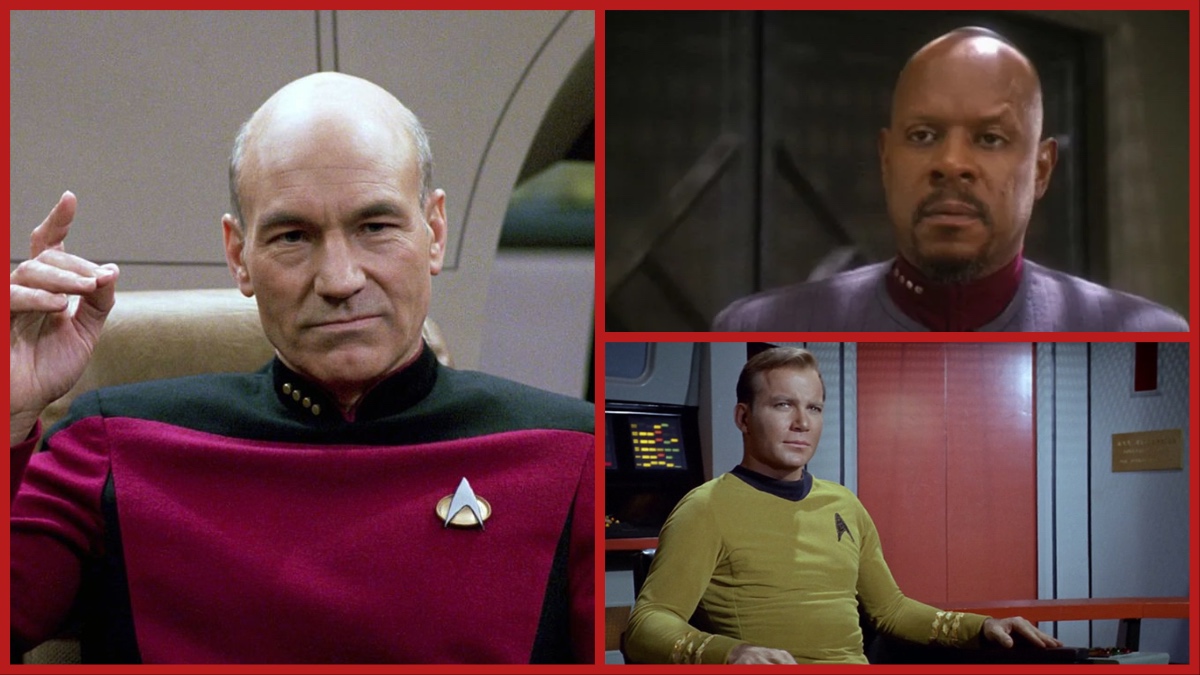
Since its initial TV appearance in 1966, the Star Trek franchise has blossomed into an extensive collection, comprising twelve series, with hopes running high for a thirteenth series set to air on Paramount+ soon. Whether you’re embarking on your first journey through the Prime universe or eagerly preparing for a revisit, here are some top-tier Star Trek series that deserve your attention.
Best Star Trek TV series as of 2025
Since we can’t include all twelve Star Trek series, we’d like to acknowledge special recognition for Strange New Worlds and Discovery.
If you’re not only a fan of the finest Star Trek television shows but also wish to immerse yourself fully, it’s recommended to follow the sequence based on their original broadcast dates.
- Star Trek: The Original Series
- Star Trek: The Animated Series
- Star Trek: The Next Generation
- Star Trek: Deep Space Nine
- Star Trek: Voyager
- Star Trek: Enterprise
- Star Trek: Discovery
- Star Trek: Short Treks
- Star Trek: Picard
- Star Trek: Lower Decks
- Star Trek: Prodigy
- Star Trek: Strange New Worlds
If it’s still not satisfying, you might want to delve further into the Star Trek universe by exploring the top-rated movies from the whole series. Rest assured, we have plenty of suggestions for you as well!
Star Trek: The Next Generation

Kick things off by checking out the classic version – even if you’re a novice when it comes to Star Trek, you can dive right in with The Next Generation. Hailing a century after Captain Kirk’s initial voyage, this series places us on board the USS Enterprise-D under the command of Captain Jean-Luc Picard, portrayed by Patrick Stewart. Throughout their cosmic journey, the crew encounters both physical perils and ethical quandaries. Remaining faithful to Star Trek’s tradition of symbolic narratives, The Next Generation also introduces compelling character development and thrilling space exploration.
From 1987 to 1994, this TV series spanned seven seasons and an impressive total of 178 episodes – a fact that might have taken viewers by surprise. It’s interesting to note that Sir Patrick Stewart, a renowned stage actor, initially joined the cast believing it would be a temporary role. With a contract initially lasting six years, Stewart assumed the series would be canceled. However, the dedicated fan base of this show ensured its longevity, keeping it running much longer than anticipated. The first two seasons may have been a bit hit-or-miss, but by Season 3, the show truly found its rhythm.
Star Trek: Deep Space Nine
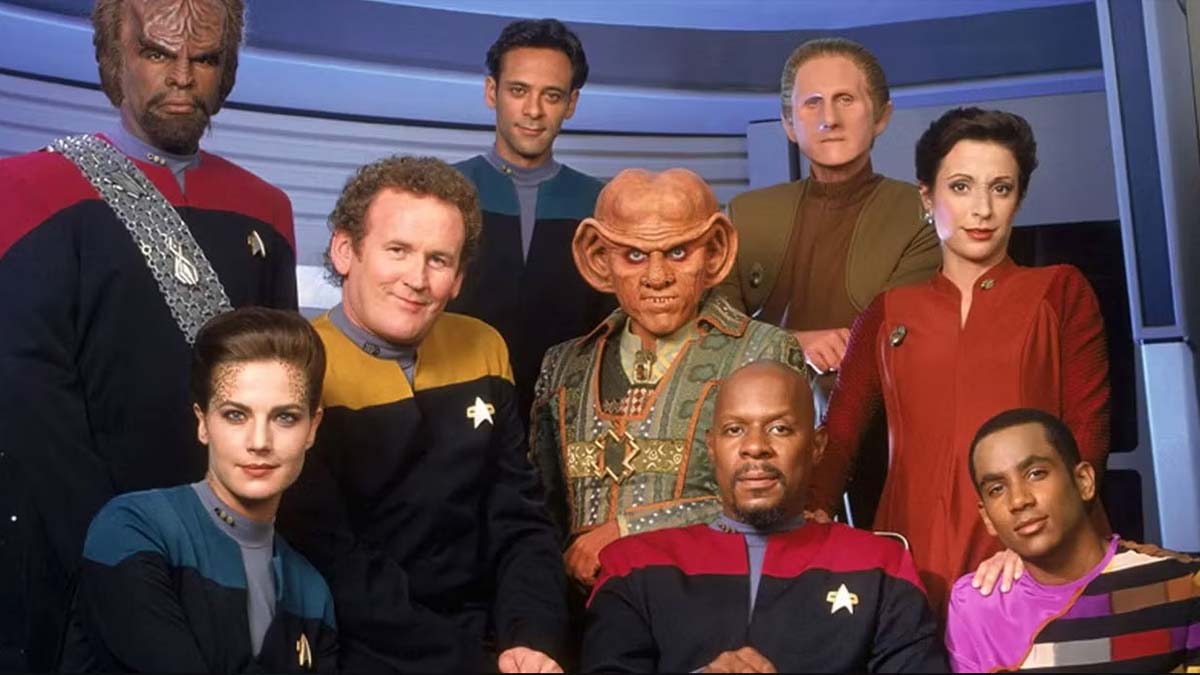
As a devoted movie enthusiast, I’d confidently assert that Deep Space Nine stands tall among the Star Trek series, transcending its ’90s origins to captivate audiences even today. Unlike other space sagas, this series delved into deeper, darker themes, creating an unexpected yet compelling narrative in the cosmos.
The story unfolds on the space station Deep Space 9, located near the planet Bajor. This station was once under the control of the Cardassians during their oppressive occupation, but now operates jointly by Starfleet and the Bajoran government. The series primarily revolves around Commander Benjamin Sisko (Avery Brooks), who is entrusted with aiding Bajor in its recovery – politically and spiritually – following years of brutal subjugation. Naturally, events take an intriguing turn from there.
Initially launching Deep Space Nine during The Next Generation’s run was a risky move by the producers. While The Next Generation emphasized utopian ideals and exploration, Deep Space Nine carved out its unique niche, characterized by grittiness and a willingness to delve into ambiguity – a trait that can be quite divisive. Instead of adhering to the traditional episodic format, it devoted more time to extended, multi-episode storylines. These narratives covered a wide range of topics, from interstellar conflicts to religious extremism to space terrorism. Unlike The Next Generation, which often featured frequent ship transitions, this series transcends mere entertainment and invites deep philosophical contemplation. This writer wholeheartedly supports such thought-provoking programming.
Star Trek: The Original Series
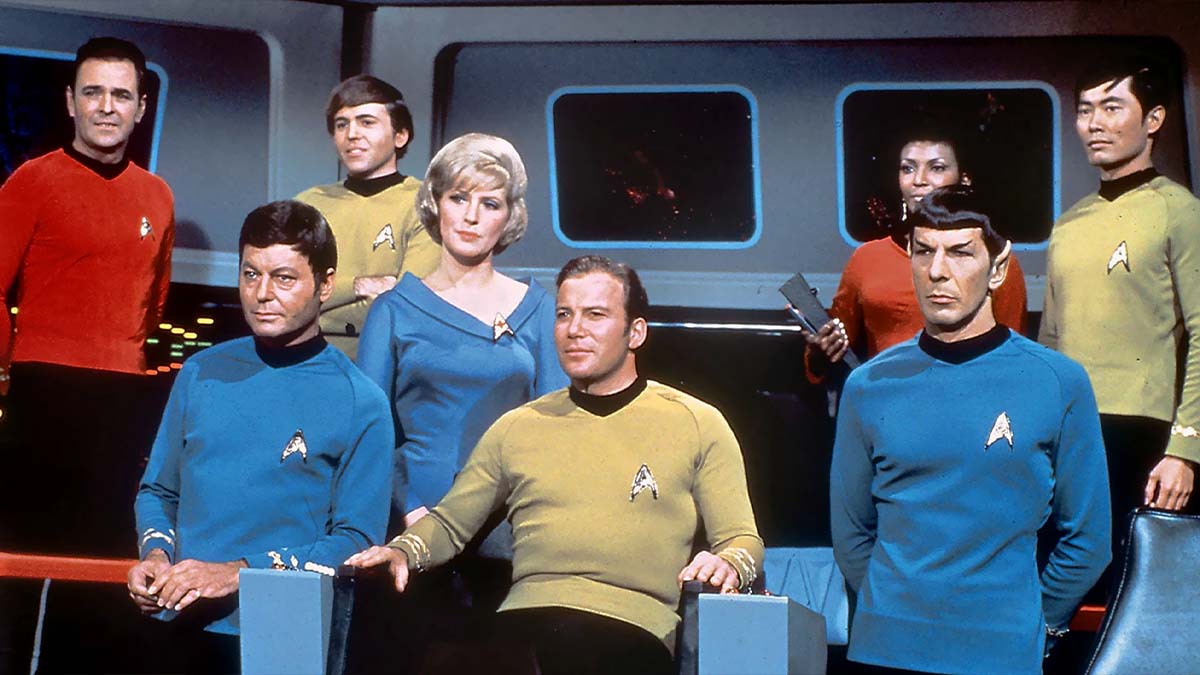
The classic TV series “Star Trek,” which premiered in 1966, stars Captain Kirk (played by William Shatner) and his crew aboard the USS Enterprise, embarking on diverse missions across deep space. Beyond mere entertainment, it provided an unusual optimism during turbulent times such as the civil rights movement, the escalating Vietnam War, and Cold War tensions. Star Trek offered a unique vision of a hopeful future for mankind. It also broke new ground, featuring several significant firsts: the first interracial kiss on TV, a Black actor (Percy Rodriguez) in a high-ranking role, and an episode where a woman served as a Starfleet officer. Nichelle Nichols, who played Lieutenant Uhura, was urged by Martin Luther King Jr. to continue with the show, emphasizing the significance of her character as a positive symbol for African American children.
In a groundbreaking fashion, The Original Series stood out, not merely within the realm of science fiction, but across the broader landscape of entertainment history. Regrettably, its run was prematurely cut short, with the show being terminated following just three seasons.
Star Trek: Enterprise
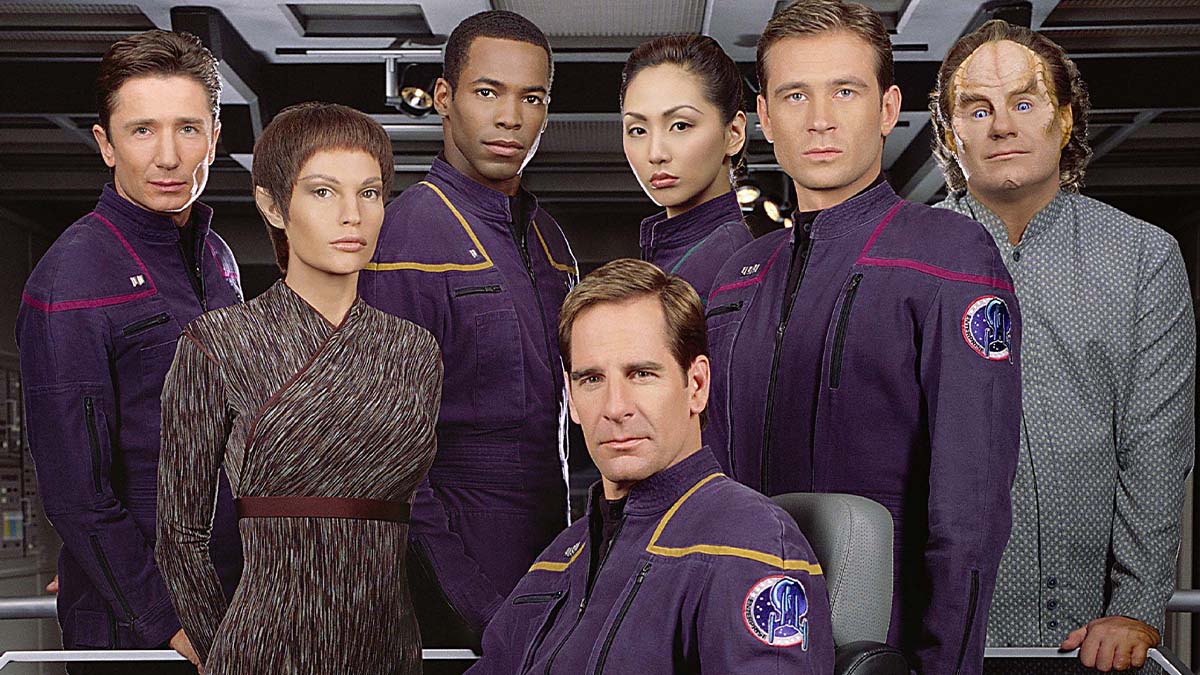
From 2001 to 2005, Star Trek: Enterprise was created, taking us back to events preceding other series. Often criticized, this show deserves more praise than it receives. Despite some flaws, such as a rather cheesy theme tune typical of the early 2000s, and certain imperfections, Enterprise played a significant role in modernizing Star Trek for the 21st century. Its style had a tangible impact on the subsequent series.
The series follows Captain Jonathan Archer and his inexperienced crew aboard the pioneering starship Enterprise NX-01, as they embark on humanity’s first journey into deep space. As Starfleet is still in its infancy, the team is essentially greenhorns, giving the first two seasons a sincere and curious atmosphere. The Xindi arc in Seasons 3 and 4 receives some criticism, especially for its post-9/11 undertones of nationalism. However, like many Star Trek narratives, Enterprise reflects real-world events, which is not entirely unexpected.
Star Trek: Voyager
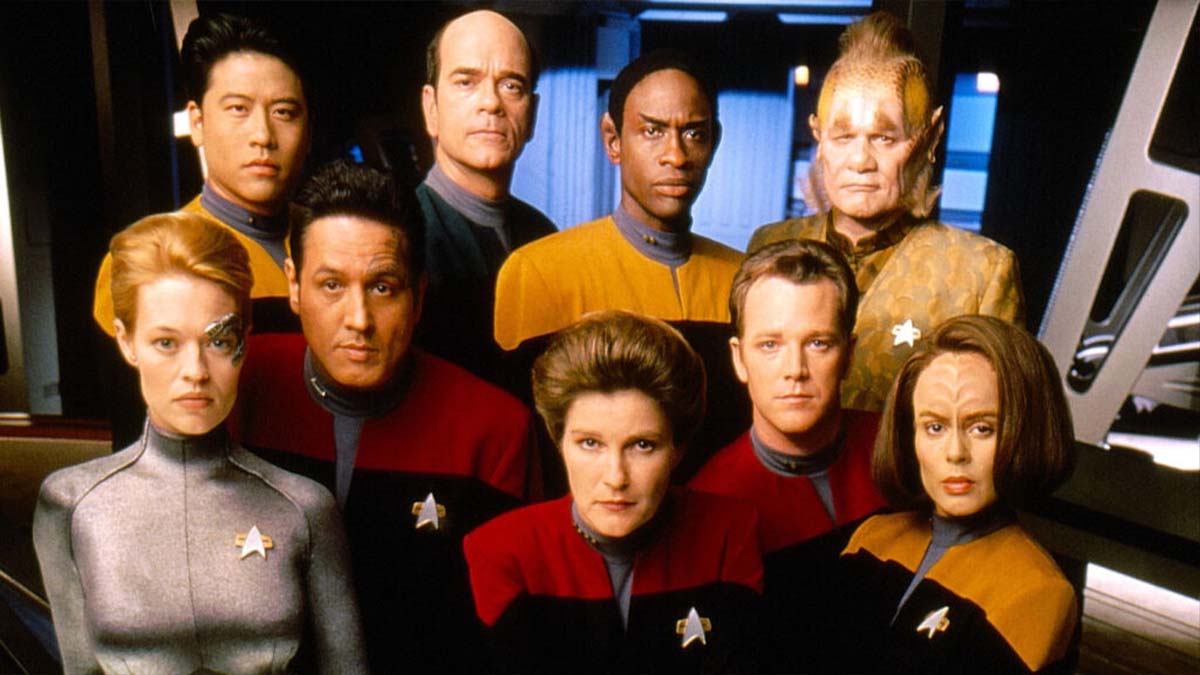
From 1995 to 2001, Voyager set sail, inviting us on a voyage aboard the Starfleet spaceship, USS Voyager, as it navigated its way through the cosmos towards the Alpha Quadrant following an unexpected trip to the galaxy’s outskirts, approximately 70,000 light-years from its home base. Without discovering advanced warp technology or locating a wormhole, their return journey promises to be a lifelong endeavor. Quite a conundrum!
As a film enthusiast, I must say that Voyager harks back to the spirit of exploration, much like the original Star Trek series, Deep Space Nine ventured into heavier themes such as religion and politics. However, Voyager doesn’t just offer space adventures; it delves deeper, presenting complex moral dilemmas faced by its characters. Should we seize technology from another species to hasten our journey home, or remain steadfast in our principles and potentially arrive home much older? This is the intriguing tension that makes Voyager a captivating watch.
Occasionally, the character growth seems unpredictable, and not all episodes are equally compelling, but the fundamental concept is undeniably one of the most captivating among all Star Trek series.
How we chose the best Star Trek TV series
We chose the top Star Trek series by considering fan feedback and its significance within the franchise. However, not all of them are equally crucial, but they still carry importance. What truly matters is how engaging each series remains during repeat viewings. If a show isn’t compelling enough to revisit, it can be tough to label it as a favorite. Consequently, we awarded more points to those shows that we would happily watch multiple times.
You can catch these favorites, plus other Star Trek TV series, streaming on Paramount+.
Read More
- Survivor’s Colby Donaldson Admits He Almost Backed Out of Season 50
- Gold Rate Forecast
- Best Controller Settings for ARC Raiders
- Where Winds Meet: How To Defeat Shadow Puppeteer (Boss Guide)
- How to Build a Waterfall in Enshrouded
- Goat 2 Release Date Estimate, News & Updates
- Death Stranding 2: Best Enhancements to Unlock First | APAS Guide
- 10 Best Character Duos in Stranger Things, Ranked
- EA Sports FC 25: Best Players for Aim Assist Evolution
- The Best Sports Movie Franchise Is Finally Complete on a Single Streaming Service
2025-07-15 04:01